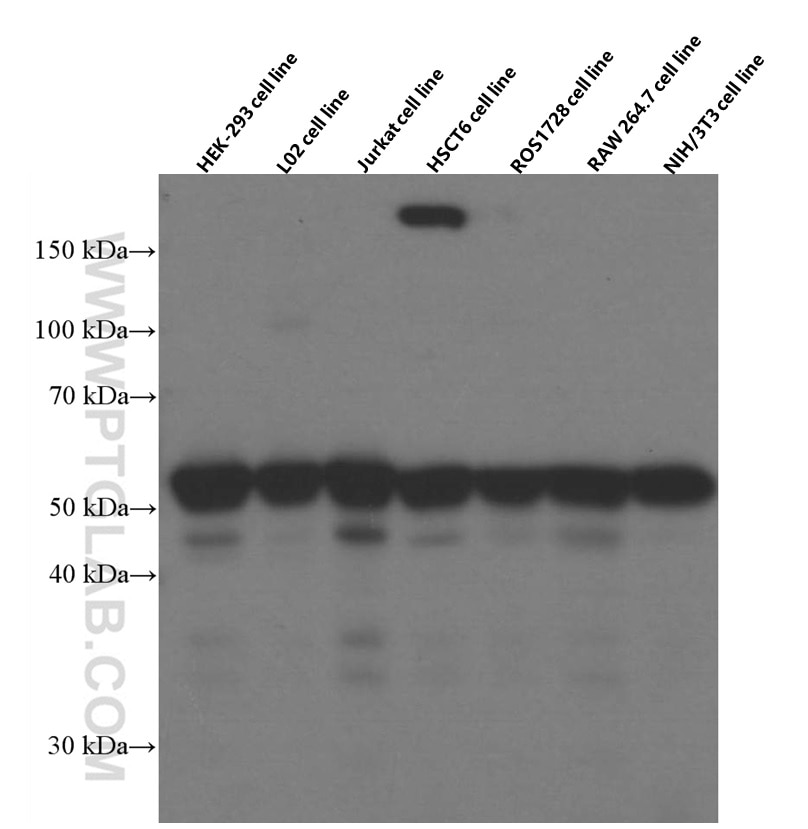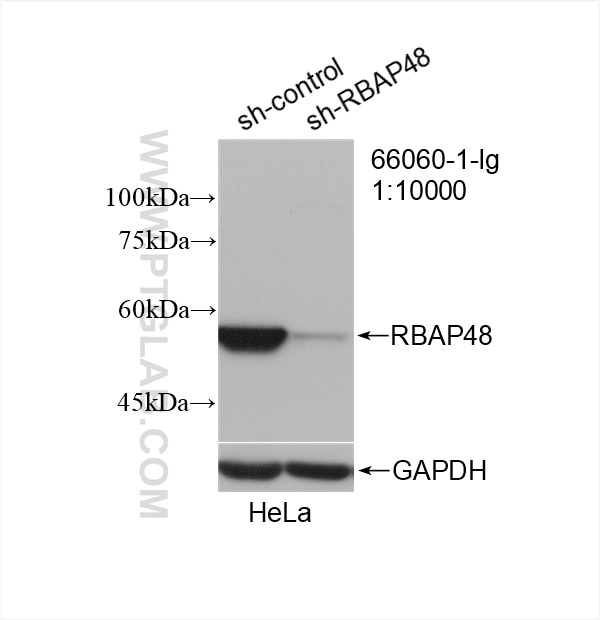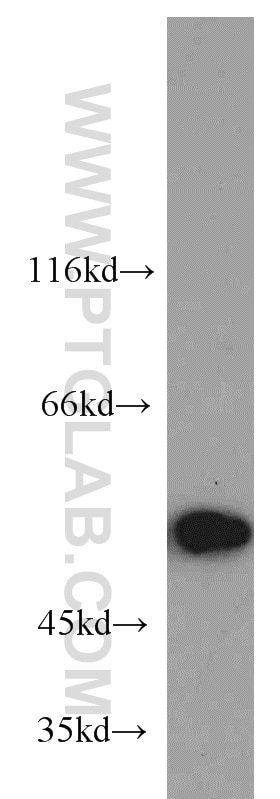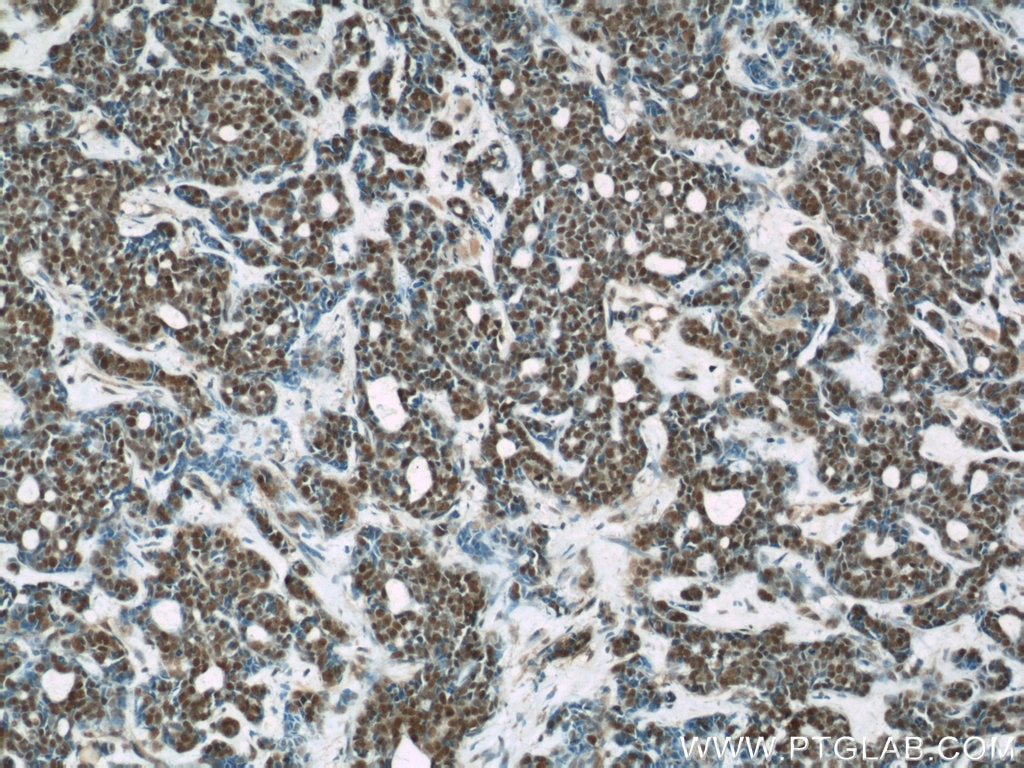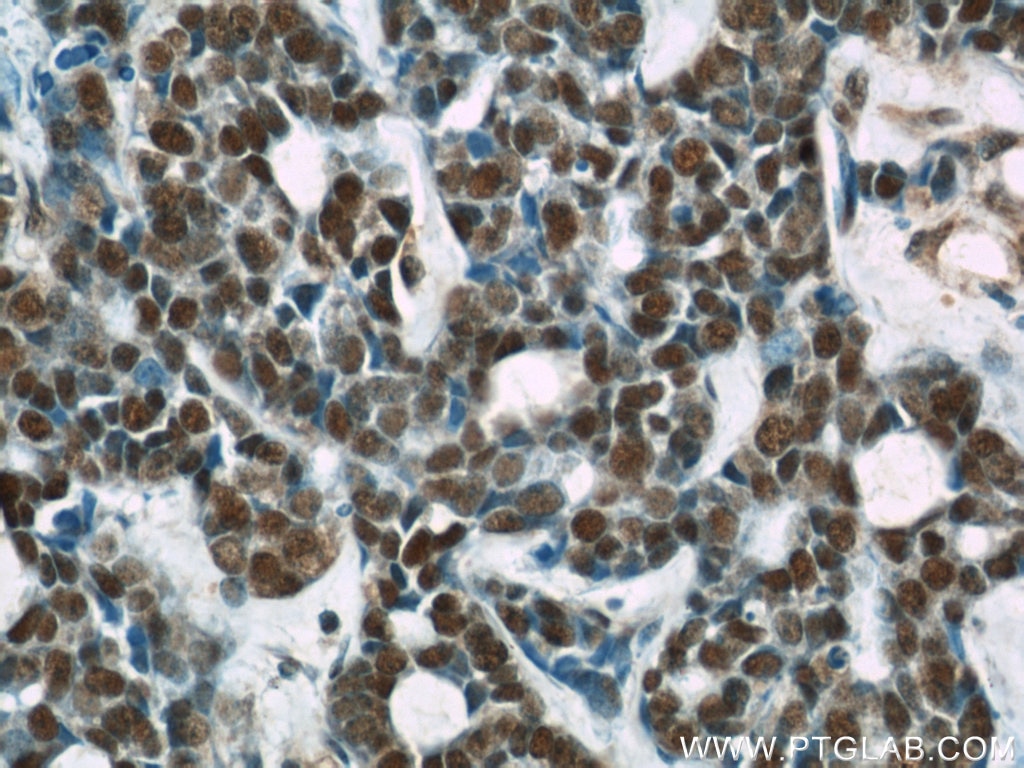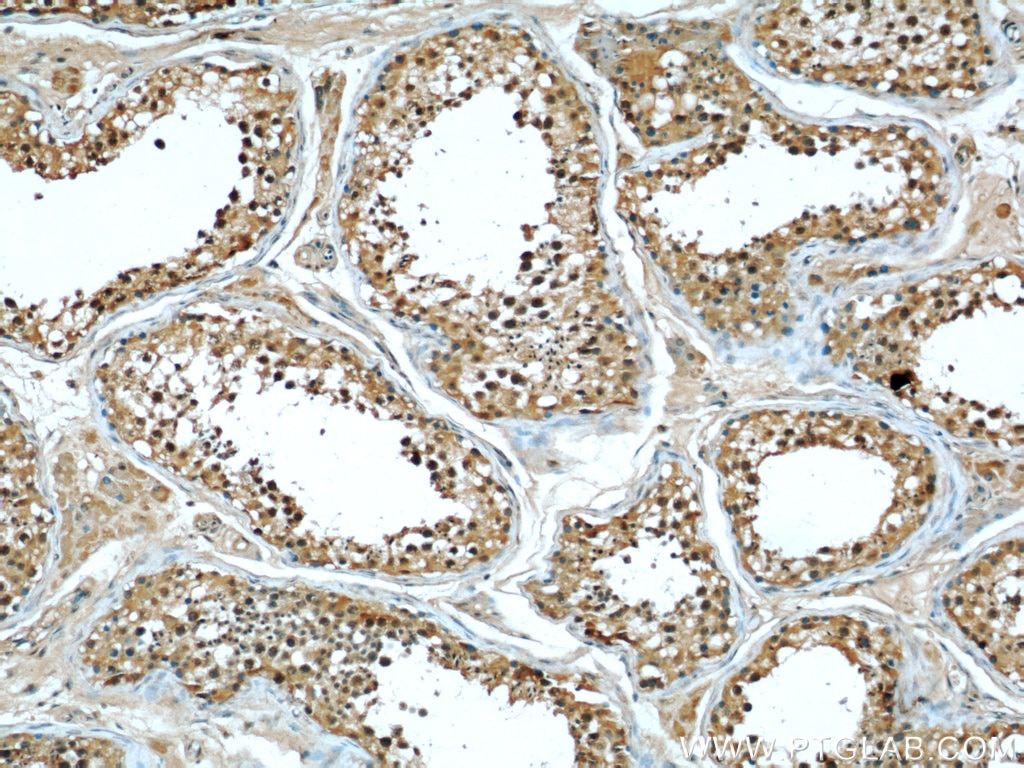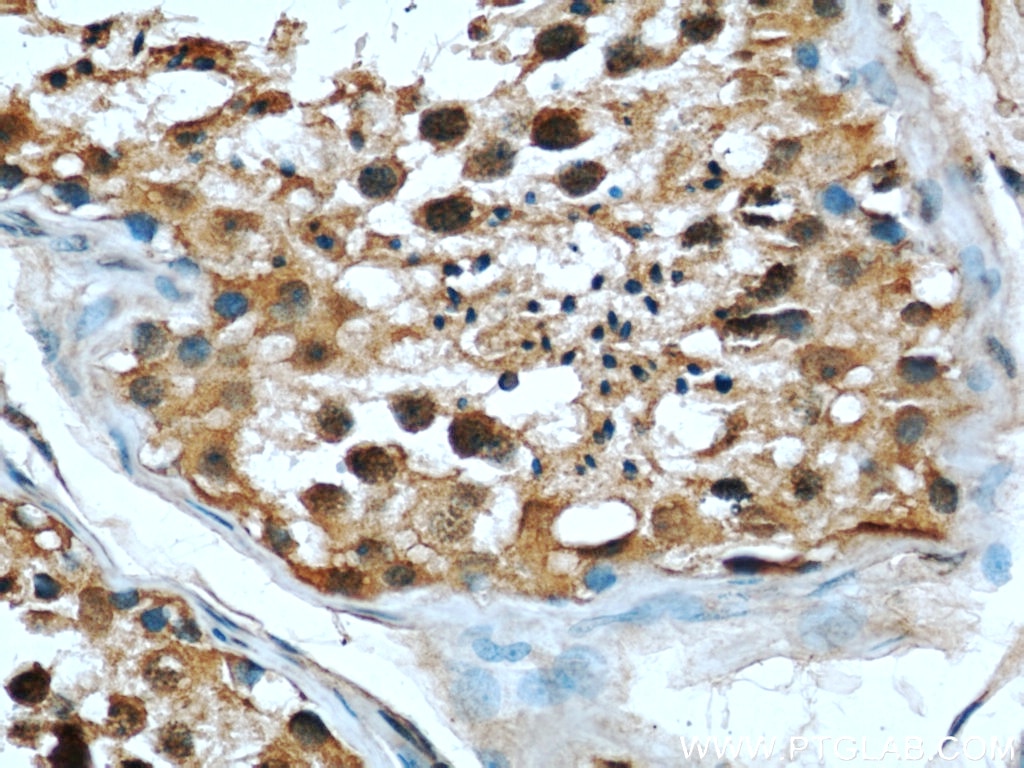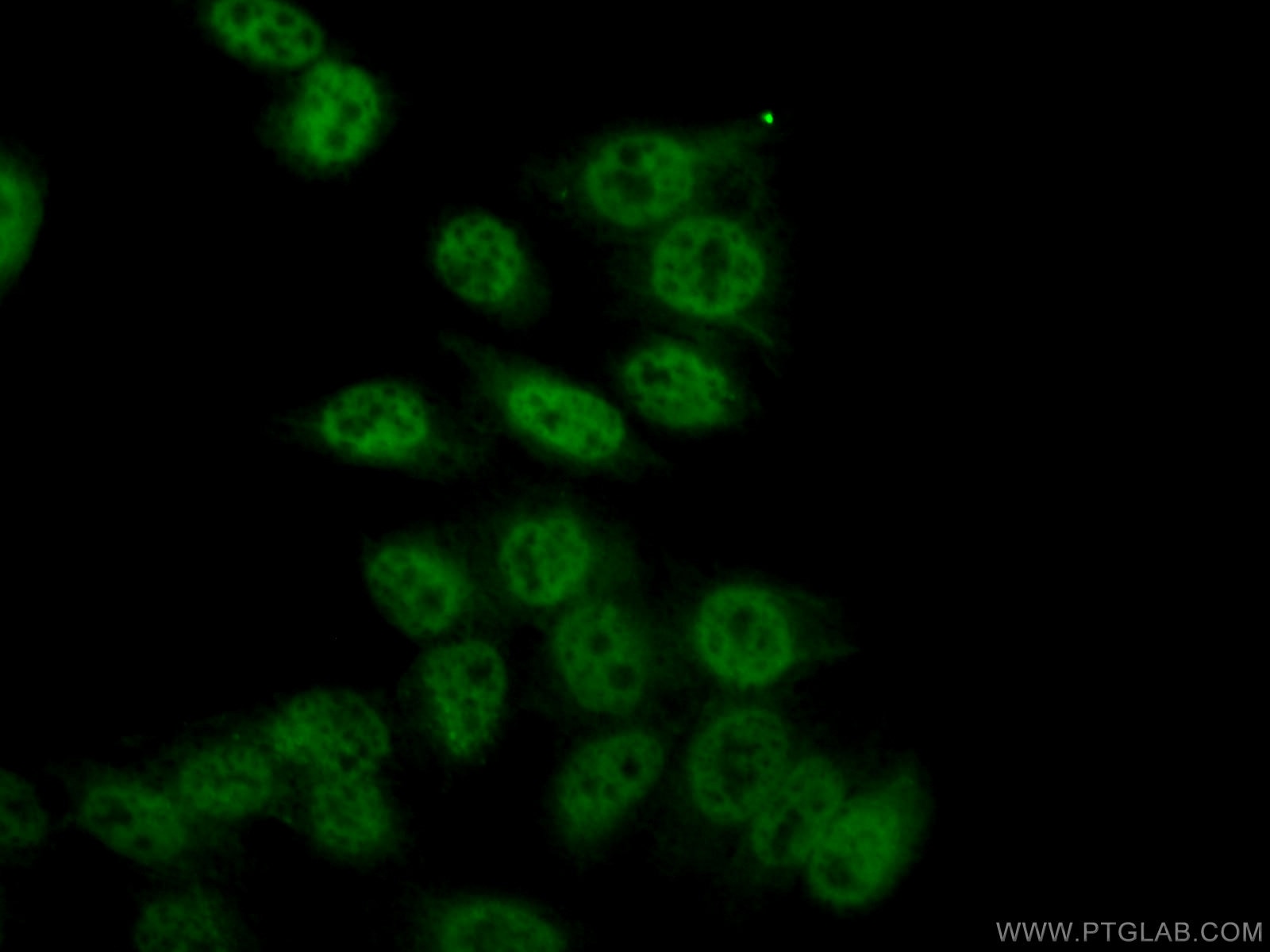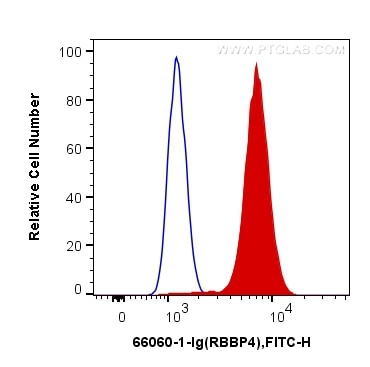- Featured Product
- KD/KO Validated
RBAP48 Monoklonaler Antikörper
RBAP48 Monoklonal Antikörper für WB, IHC, IF/ICC, FC (Intra), Indirect ELISA
Wirt / Isotyp
Maus / IgG2b
Getestete Reaktivität
human, Maus, Ratte
Anwendung
WB, IHC, IF/ICC, FC (Intra), Indirect ELISA
Konjugation
Unkonjugiert
CloneNo.
5C4D6
Kat-Nr. : 66060-1-PBS
Synonyme
Geprüfte Anwendungen
Produktinformation
66060-1-PBS bindet in WB, IHC, IF/ICC, FC (Intra), Indirect ELISA RBAP48 und zeigt Reaktivität mit human, Maus, Ratten
| Getestete Reaktivität | human, Maus, Ratte |
| Wirt / Isotyp | Maus / IgG2b |
| Klonalität | Monoklonal |
| Typ | Antikörper |
| Immunogen | RBAP48 fusion protein Ag6196 |
| Vollständiger Name | retinoblastoma binding protein 4 |
| Berechnetes Molekulargewicht | 48 kDa |
| Beobachtetes Molekulargewicht | 53 kDa |
| GenBank-Zugangsnummer | BC053904 |
| Gene symbol | RBBP4 |
| Gene ID (NCBI) | 5928 |
| Konjugation | Unkonjugiert |
| Form | Liquid |
| Reinigungsmethode | Protein-A-Reinigung |
| Lagerungspuffer | PBS only |
| Lagerungsbedingungen | Store at -80°C. 20ul Größen enthalten 0,1% BSA. |
Hintergrundinformationen
Histone-binding protein RBBP4 (also known as RbAp48, or NURF55) is a protein that in humans is encoded by the RBBP4 gene. This gene encodes a ubiquitously expressed nuclear protein that belongs to a highly conserved subfamily of WD-repeat proteins. It is present in protein complexes involved in histone acetylation and chromatin assembly. It is part of the Mi-2/NuRD complex complex that has been implicated in chromatin remodeling and transcriptional repression associated with histone deacetylation. This encoded protein is also part of corepressor complexes, which is an integral component of transcriptional silencing. It is found among several cellular proteins that bind directly to retinoblastoma protein to regulate cell proliferation. A decrease of RbAp48 in the dentate gyrus (DG) of the hippocampus in the brain is suspected to be a main cause of memory loss in normal aging (PMID: 23986399).
